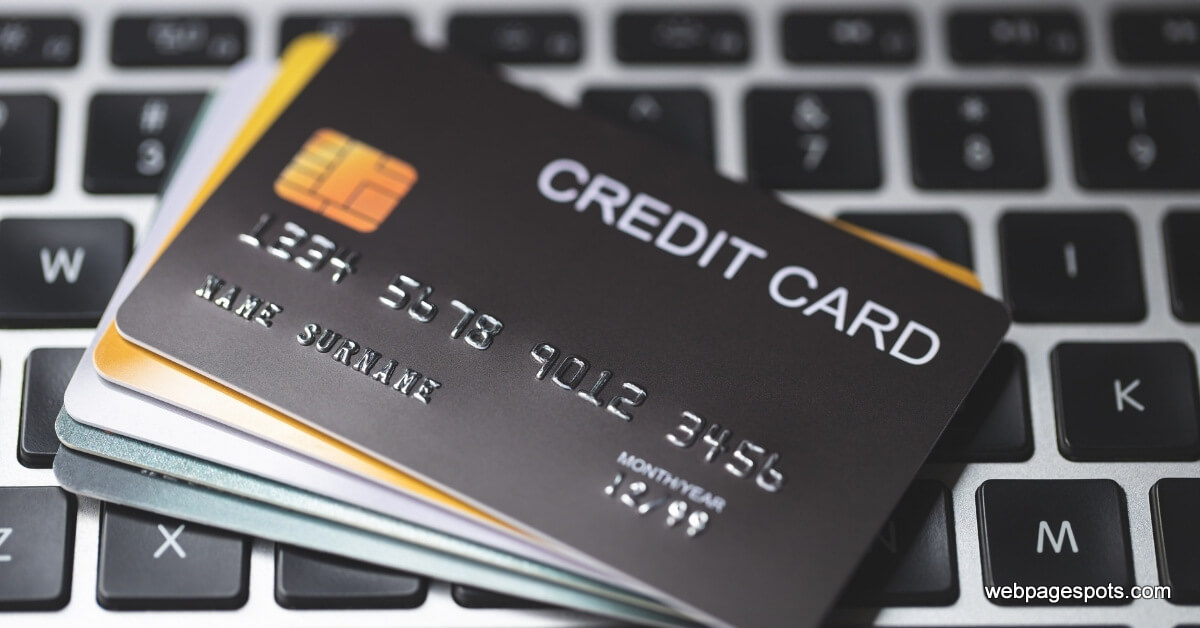7 Steps to Defend Your Device and Money From Getting Hacked
This blog post may contain affiliate links. If we find a product or service to be useful, we encourage you to visit the website via that link. If you make a purchase through our referral link, we may receive a commission. Rest assured, you will not be charged any additional fees. By using these links, you can support us while making your purchase. For more information visit here.
If you’ve ever had your identity stolen online or been a victim of fraud, you’ll know just how stressful and financially destructive it can be. Let’s learn how to defend your device and money from getting hacked.
But even though the consequences can be severe, both personally and financially, making sure you’re protected against fraudsters online is still something that is often pushed aside to ‘do another day.’ Cyberattacks are now commonplace, and Twitter recently warned its 330 million users to alter their passwords after a glitch was discovered in its IT system. This glitch cached passwords and usernames in plain text.
Meanwhile, last month the headlines were stuffed with potential threats of state-sponsored hacking attacks from Russia. They led to a joint warning from the UK’s National Cyber Security Centre, the FBI, and the US Department of Homeland Security on the topic.

How To Defend Your Device And Money From Getting Hacked
Large-scale cyberattacks are fortunately very rare. Yet we often hear from people who have fallen victim to online fraud. We asked several cybersecurity experts for their top tips for avoiding becoming a victim. In this list, we’ll reveal seven of the easiest techniques that you can use to make the crooks think twice.
(1) Be careful with the information you share on social media
When it comes to acquiring personal information and potentially swindling people, scammers will find social media to be a gold mine. As a result, it is critical that certain personal information, such as your date of birth, signaling, or address, not be disclosed here.
Similarly, if you routinely post updates on your social media profiles following your most recent vacation. That will serve as a tool for burglars, allowing them to predict when your house will be vacant. ‘By observing your images or videos, hackers can discover where you live and work,’ said Lisa Baergen, director of a web technology firm, NuData Security.
They can learn your spouse’s name and who you hang out with.
- As an example, even the name of your pet that you can use as a solution to solid safety questions
- Creditors and financial institutions use your mother’s maiden name and preferred information identification to confirm your identity.
To protect yourself on your social media feeds, review your security settings to determine who can access the main points you share. Ensure your security settings are at the most secure possible stage. And use less obvious answers to security questions – like the name of your pet, which can be retrieved quickly from your profile.

(2) A password manager will encrypt and store all your passwords
Your accounts require you to change your password on a frequent basis and to use a separate password for each account.
However, memorizing eight or nine distinct passwords (if not more) and changing passwords frequently can be inconvenient and time-consuming. A password manager, on the other hand, can do this for you. They pledge to use and generate secure passwords that include a mix of letters, numbers, and unusual characters.
They store these in an encrypted account. And when logged into the password manager, your username and password will automatically be filled in after you ask.
Adam Brown, a spokesperson for the web technology firm Synopsis, explains that “nowadays, users have many online accounts. If one of them is breached and it leaks password data with a linkable identification, like a username or email address. The quality of the password usually prevents the user from keeping it confidential. Still, there’s a poor practice of reusing passwords. They should avoid using anything that pertains to the user, as well as dictionary words and variations.”

Targeted attacks use surveillance to gather intelligence about the victim; social media or public records can reveal friends’ and relatives’ names and dates. Ideally, you must use a novel string with numbers, lowercase letters, and special characters. In addition, sentences can help increase the complexity of a password while keeping it memorable.
A reputable password manager allows users to use non-guessable passwords (which also tend to be non-memorable) for their online accounts. In other words, you’ll be putting all your eggs in one basket. Still, they need powerful security controls and, in fact, an honest password manager never actually stores your password.
Just a brilliant encrypted version of it that only you with the key (the password-manager app and password) can access.’
(3) Install up-to-date virus software
When you connect your computer, mobile, or tablet to the net, you’re potentially opening it up for a widespread epidemic that steals private information from you. To prevent this from happening, install a program and make sure you regularly update it. It includes completing regular full virus scans and downloading any updates sent by the provider.
Many free antivirus programs are available.
Like Windows Defender (free to those with newer versions of Windows), Avast Antivirus, McAfee, and Avira.
Also Read: How To Pick Out The Best Battery For A Solar Panel System
(4) Patch your operating system: Defend Your Device And Money from Getting Hacked
‘Patching’ your OS means completing regular updates for whatever system you’re using. Like Apple and Microsoft, large companies send this intent to ensure their systems can fully update their computers with the most recent software to attack viruses. This will take them away. It is crucial for cybersecurity, as these patches often include details to shield your computer from recent online viruses.
(5) Use a VPN connection when observing private information online
A free WiFi network will be a godsend if you’ve run out of resources or don’t want to burn through your data while browsing the web. However, hackers can even use your wifi network to steal personal and financial information from people using that network. For security, keep your password a secret. Open WiFi networks aren’t as secure as private ones.
So try and avoid using online banking or entering your payment or personal details when using one. If you’re on a VPN or virtual private network, the connection can provide you with an additional layer of protection. These allow you to remotely connect to a private network and encrypt your internet connection.
So any data you send so that nobody can access it – including the web service provider or a possible hacker. There are several VPNs available online for free as well as a number of other apps you can download.

(6) Review your credit score periodically for suspicious payments or applications
Because any credit card applications will show up here, your credit score may be the first place you discover someone has hacked you. As a result, you should check your credit report regularly and contact the credit bureau if you see anything unusual. Experian representative James Jones commented:
‘If you’re unfortunate enough to be targeted by a fraudster, the sooner you discover it and raise the alarm, the less time and energy you’ll have to spend putting things right.’ ‘All the major credit source agencies (Experian, Callcredit, and Equifax) offer free support to scam victims to limit any discomfort and inconvenience, including liaising with the lenders committed on your behalf.’
They also offer paid-for web-monitoring tools that may search online. And warn you if they find your private information to be somewhere online.
(7) Never permitted links from people you don’t know
When you contact someone, you do not know who they are. It’s whether through email, phone calls, text messages, social media, or perhaps in a very long WhatsApp message. Then I advise you not to click on any link. Check who the person is within a notification before committing or redeeming any of your personal information.
If there are links or attachments within the communication, don’t open them until you’re convinced that the sender is genuine. If you recognize the sender, double-check with them to be sure they intended to share the link. And it is not a plague.
Vice-chairperson of online security firm NuData (Mastercard Security), says:
‘Most fraudsters will first try to contact you with an email pretending to be from your bank or institution, or perhaps from a trusted merchant brand.’ Be very wary of any emails received from these sources – it’s unlikely that any bank will contact you via email.
Regrettably, emails from brands have become commonplace (sometimes all too frequently) and have become extremely realistic and complicated. If an unsolicited email requests your personal and financial details. Investigate what the sender organization is up to by conducting some research, picking up the phone, and calling them personally.
I’ll pause it here. Was it helpful to you? If you like this post, please tell us. Thank you for reading this article. However, you can send us your suggestions or experiences as comments, and we would love to hear what you have to say.
Understanding the importance of copyright law is absolutely vital, as it strictly prohibits any reproduction or replication of works without the explicit permission of the author. Any unauthorized duplication of content will lead to legal action for copyright infringement under Section 14 of the Copyright Act.












